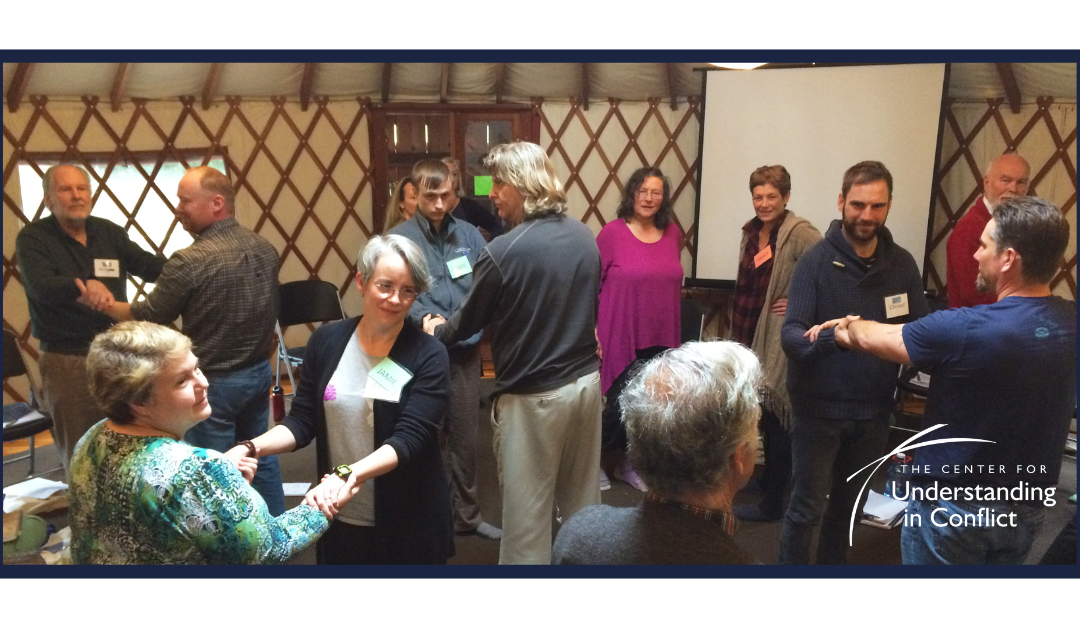The atmosphere seemed charged with possibility when participants stepped into the serene retreat center at Green Gulch, nestled near the ocean in Mill Valley on the West Coast of California. The diverse participants—teachers, managers, social workers, and business executives alike—arrived to attend the 40-hour understanding-based conflict resolution and mediation training program offered by the Center for Understanding in Conflict, a 40-year-old nonprofit organization.
The trainers, seasoned mediators dedicated to making an impact through conflict resolution education, greeted the participants warmly, setting a tone of openness and learning from the outset. With a curriculum designed to emphasize understanding-based conflict resolution, which was groundbreaking when Gary Friedman and Jack Himmelstein created it in 1982, the program focused on practical solutions and fostering genuine understanding and empathy in mediation. This approach immediately resonated with our participants, sparking a newfound enthusiasm for the potential of mediation to transform relationships and communities.
As the five days unfolded, participants immersed themselves in role-playing scenarios and discussions that simulated real-world conflicts. Guided by the trainers, who drew on their extensive experience in diverse mediation settings, they navigated workplace disputes, family conflicts, and community tensions. Each exercise underscored the transformative potential of understanding-based conflict resolution, where conflicts were reframed not as obstacles but as opportunities for growth and connection.
The training also addressed the emotional dimensions of conflict, teaching techniques to acknowledge and validate feelings constructively. The trainers’ stories of mediations where intense emotions were skillfully managed left a lasting impression, demonstrating how empathy and patience could pave the way for reconciliation even in the most heated disputes.
After completing the initial training, one participant returned to their role as a community manager with renewed confidence and a fresh perspective. Applying their newfound skills, they approached conflicts with a greater emphasis on listening, understanding, and empathy. Their first significant test was mediating a dispute between community members over resource allocation. Instead of imposing solutions, they facilitated a dialogue where each party could express their concerns and aspirations. Drawing on techniques learned in training, they guided the conversation toward a mutually agreeable resolution—a small but meaningful victory that affirmed the efficacy of their training.
With each mediation case at a local center where they volunteered, they encountered diverse conflicts—ranging from family disagreements to neighborhood disputes. Applying the principles of understanding-based conflict resolution, they facilitated dialogues that enabled parties to move past entrenched positions toward mutual understanding and resolution. The transformative impact of their work became evident in cases where initial hostility gave way to reconciliation and renewed understanding among conflicting parties.
Participants like this witness firsthand the power of understanding-based conflict resolution in transforming lives and communities. Every day presents new challenges and opportunities to facilitate meaningful dialogues and foster connections amidst conflict. Those who take the journey from participant to practitioner are grateful for the training that equipped them with skills and a deeper appreciation for empathy and human connection. Encouraged by their experiences, they advocate for others to embark on similar journeys of learning and discovery—a journey towards a more compassionate and harmonious world, one conflict resolved at a time.
